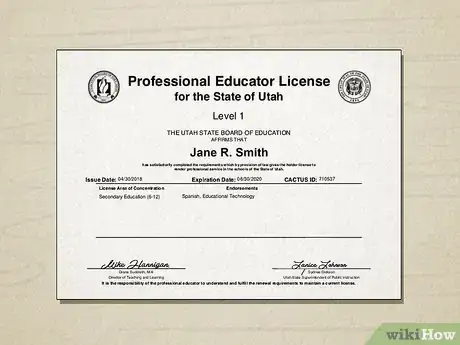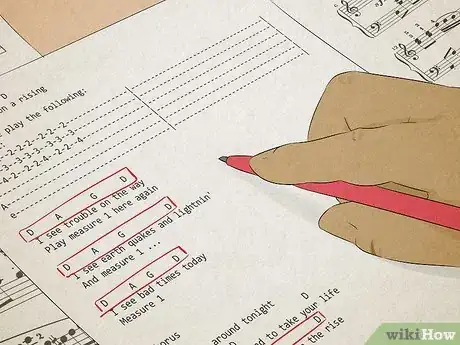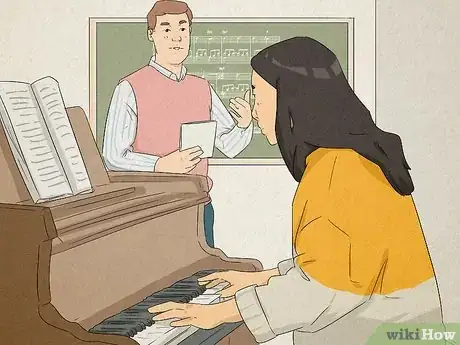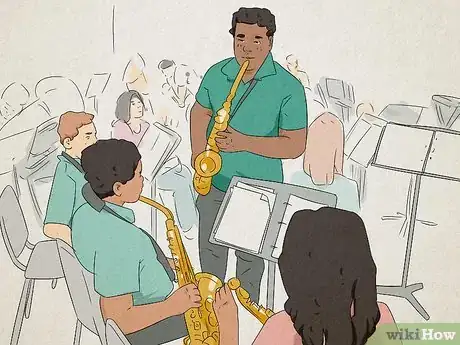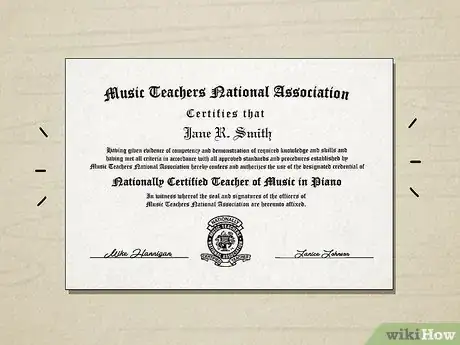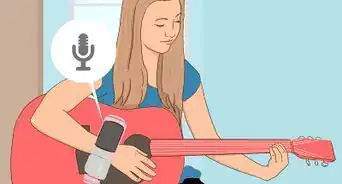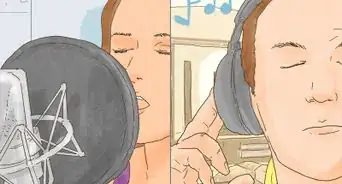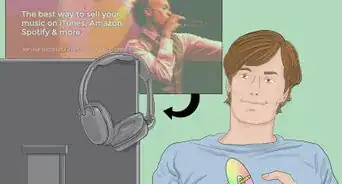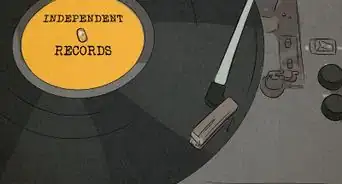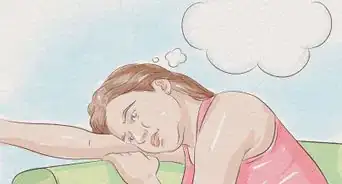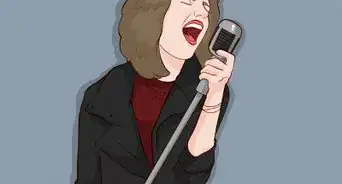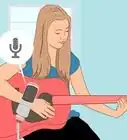This article was co-authored by wikiHow staff writer, Kira Jan. Kira Jan earned her B.A. in English from Stanford University in 2021. She has published work in a variety of literary magazines and edited for bestselling authors. Kira now writes and edits for the content team at wikiHow with the goal of reaching audiences of all backgrounds, skillsets, and interests. She enjoys continually learning alongside wikiHow readers and working to create connection through the written word.
There are 23 references cited in this article, which can be found at the bottom of the page.
This article has been viewed 100,962 times.
Learn more...
When you become a music teacher, you get to pursue your passion for music and share that gift with others. If you’re patient, enthusiastic, and excel at an instrument, you might make an amazing teacher. It can be tricky to figure out how to turn your passion and talent into a career, but don’t worry—we’ve answered the most common questions about making your music teacher career happen!
Steps
What qualifications do you need to be a music teacher?
-
1To teach at a public school, you’ll need a bachelor’s degree. Typically, you’ll attend a 4-year accredited university to study music education or a related field. Then, you’ll go through a teacher training program affiliated with your school in order to prepare you for in-class instruction.[1]
-
2After your bachelor’s, you’ll need to get a state teaching license. While private schools might not require this, all public schools will.[2] To figure out which credential you need, search for your state’s teaching credential commission website. Look for the requirements to get a single-subject certification in music (offered in 39 states).[3]
- To be eligible for certification, you’ll need at least a bachelor’s degree and sufficient student teaching or observation hours (which vary by state).[4]
- You may also need to take tests on your proficiency in basic subjects, teaching pedagogy, and music content.[5]
- Application fees will range from $0-$200 depending on your state.[6]
Advertisement -
3To teach at the collegiate level, you’ll need a graduate degree. For example, you could pursue an M.A. in Violin Performance or a Ph.D. in Composition. Most master’s programs will take 2-3 years if you already have a bachelor’s degree while Ph.D. programs will take 5-6 years.[7]
What should you look for in a degree program?
-
1Pick a program with musicianship requirements you can meet. As a music teacher, you’ll have to be skilled at an instrument and learn to be functionally proficient in both keyboard and voice. To attend an accredited university, you’ll have to demonstrate your musicianship through performance and music literacy.[8]
-
2Search for programs that will give you hands-on experience. Look for colleges that partner with schools to give you opportunities to shadow teachers or gain student teaching experience.[11]
-
3Make sure the school will give you the right kind of certification. Search the school website or ask students, faculty, and admissions officers questions about what the degree will qualify you to teach.[12]
- What type of music (general, instrumental, choral) will you be certified to teach?
- Are the certifications transferrable to other states?
- Will you have to pursue a state teaching license outside of the program or does the school build certification into the curriculum?
-
4Look for schools with proven success in job placement. Does the school help connect students with employers? How do the musicians and music teaching professionals you know view the school?[13]
How do you start teaching private music lessons?
-
1Create a simple website. Include a bio, picture of yourself, page with testimonials, and contact details.[20] Add blogging content to boost your website in the search rankings. You can use the blog space to write about your teaching philosophy or music interests, but just be sure to include keywords like “Los Angeles piano lessons” or “Tallahassee voice lessons.”[21]
-
2Use social media to target local parents, musicians, and arts programs. Upload short tutorials, FAQs, and pictures of you playing. You can even message local schools, summer camps, and afterschool programs to see if they’re interested in hiring a music teacher or sharing your content. If you’re asking a local page to promote you, be sure to explain why your content is relevant for their audience.[22]
- “Hi, I’m a local music teacher and wanted to ask if you’d be willing to repost this tutorial on learning guitar. I really appreciate your positive messaging promoting arts in the community and I’d love to be a part of that with my music lessons. Thanks!”
-
3Look into teaching music at a summer camp or after-school program. Even if you start on a volunteer basis, you’ll get more teaching experience and exposure to families who may hire you for private lessons.[23]
-
4Offer free 30-minute consultations. In a free consultation, you can show off your teaching abilities and let your client know that you’re the right instructor for them. Use the time to give clients an evaluation of their skillset, figure out their goals, describe a plan you have for them to move forward, and tell them how you’d coach them in the right direction.[24]
Community Q&A
-
QuestionHow many years of experience do you need to become a music teacher?
 wikiHow Staff EditorThis answer was written by one of our trained team of researchers who validated it for accuracy and comprehensiveness.
wikiHow Staff EditorThis answer was written by one of our trained team of researchers who validated it for accuracy and comprehensiveness.
Staff Answer wikiHow Staff EditorStaff AnswerIt'll take 4 years to get your degree in music education, but the amount of years of experience on an instrument will vary. For instance, you can become proficient at piano in 3-5 years of consistent work while it takes 5+ years to become proficient at violin.
wikiHow Staff EditorStaff AnswerIt'll take 4 years to get your degree in music education, but the amount of years of experience on an instrument will vary. For instance, you can become proficient at piano in 3-5 years of consistent work while it takes 5+ years to become proficient at violin. -
QuestionHow long does it take to get a music degree?
 Community AnswerYou could get it in three years of hard work, if you take summer courses. The usual length of time is four years, though.
Community AnswerYou could get it in three years of hard work, if you take summer courses. The usual length of time is four years, though. -
QuestionDo the music courses in each state vary?
 Community AnswerThe courses themselves will vary from university to university, but the concepts are the same. For example, every music student must take theory courses. Some schools are on a 4 course system, some on 5; some have a separate course for ear training, some including ear training within the theory class.
Community AnswerThe courses themselves will vary from university to university, but the concepts are the same. For example, every music student must take theory courses. Some schools are on a 4 course system, some on 5; some have a separate course for ear training, some including ear training within the theory class.
References
- ↑ https://www.bls.gov/careeroutlook/2015/article/careers-for-music-lovers.htm
- ↑ https://www.bls.gov/ooh/education-training-and-library/high-school-teachers.htm
- ↑ https://nafme.org/music-education-certification-licensure
- ↑ https://www.bls.gov/careeroutlook/2015/article/careers-for-music-lovers.htm
- ↑ https://nafme.org/music-education-certification-licensure/
- ↑ https://nafme.org/music-education-certification-licensure
- ↑ https://www.bls.gov/careeroutlook/2015/article/careers-for-music-lovers.htm
- ↑ https://nasm.arts-accredit.org/accreditation/standards-guidelines/handbook/
- ↑ https://www.teaching-certification.com/music-teacher-certification.html
- ↑ https://nasm.arts-accredit.org/accreditation/standards-guidelines/handbook/
- ↑ https://journals.sagepub.com/doi/full/10.1177/0027432119865461
- ↑ https://bigfuture.collegeboard.org/majors/education-education-specific-subject-areas-music-teacher-education
- ↑ https://nasm.arts-accredit.org/students-parents/
- ↑ https://www.youtube.com/watch?v=LHyD9rer9dA&t=511s&ab_channel=Trumpeteerier
- ↑ https://www.youtube.com/watch?t=733&v=LHyD9rer9dA&feature=youtu.be&ab_channel=Trumpeteerier
- ↑ https://www.youtube.com/watch?t=285&v=xBGgmHTCgY0&feature=youtu.be&ab_channel=TheChroniclesofTeacherTay
- ↑ https://www.youtube.com/watch?v=xBGgmHTCgY0&t=529s&ab_channel=TheChroniclesofTeacherTay
- ↑ https://www.careersinmusic.com/music-teacher/
- ↑ https://www.careersinmusic.com/music-teacher/
- ↑ https://www.youtube.com/watch?v=iKEOXAgK5gM&t=115s&ab_channel=DamianKeyes
- ↑ https://www.youtube.com/watch?t=162&v=dz38r17BFb0&feature=youtu.be&ab_channel=LydiaKeeney
- ↑ https://www.youtube.com/watch?t=264&v=C2VWiQfYEs8&feature=youtu.be&ab_channel=HaleyHall
- ↑ http://majoringinmusic.com/finding-first-music-teaching-job/
- ↑ https://www.youtube.com/watch?t=217&v=iKEOXAgK5gM&feature=youtu.be&ab_channel=DamianKeyes
- ↑ http://www.mtnacertification.org/certification-overview/
- ↑ https://certification.mtna.org/Certification/Get_Certified/Teacher_Profile_Projects/Piano_Overview/Certification/Get_Certified/TPP/Piano_Overview.aspx?hkey=5a271302-5022-4ee4-8665-1ecab81e1f2f
- ↑ https://certification.mtna.org/Certification/Get_Certified/Fees.aspx

